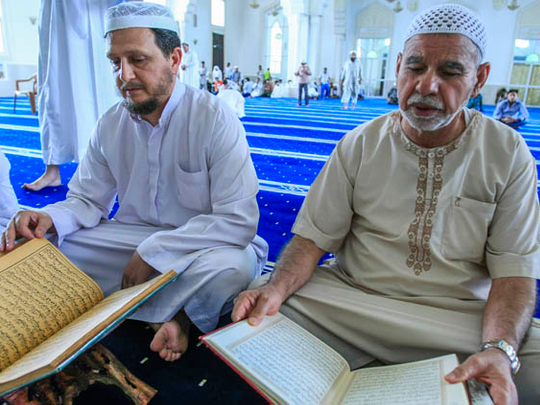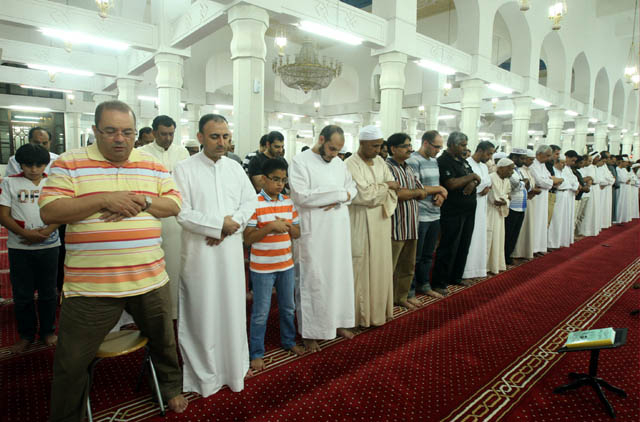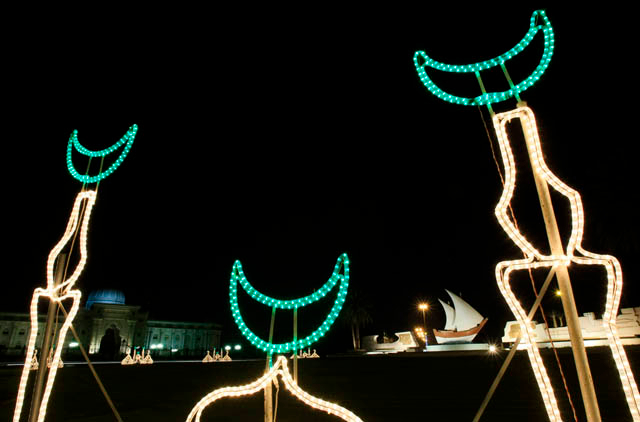
Abu Dhabi: Hazy conditions delayed the declaration of the first day of Ramadan on Monday, sources at the Moon-sighting Committee said.
“Fogs obstructed observing the new crescent after birth to determine the beginning of the holy month of Ramadan which delayed the declaration of the beginning of the fasting month to late hours in the night,” a source at the committee told Gulf News on Tuesday.
The late announcement raised the issue of whether Muslims have to rely on sighting the new crescent or the astronomical calculations as a means to determine the Islamic calendar.
Many Muslim scholars agree on moon-sighting as the only acceptable way for determining the beginning of the new lunar month as they root the practice of moon-sighting, particularly for Ramadan, in the Quranic and Prophetic injunctions.
However, Dr Ahmad Al Kubaisi, a prominent scholar, disagrees and thinks that astronomical calculations provide a more reliable and certain approach for determining the beginning of the Islamic lunar months.
“Prophet Mohammad (PBUH), indeed, directed the companions to establish the first day of Ramadan by sighting the moon, but the reason for his directive was the inability of early Muslims to provide accurate astronomical calculation, which can precisely determine astronomical phenomena for the next 200 years,” Dr Al Kubaisi told Gulf News.
Moon-sighting, he said, was the only tool available for the early Muslim community, but nowadays Muslims should understand the Quranic and Prophetic injunctions in the light of their era and scientific achievement.
“How can we use cellphones and airplanes and refuse to employ the service of qualified observers using advance tools and facilities,” Dr Al Kubaisi asked.
The UAE’s moon sighting committee has announced that Wednesday is the first day of Ramadan, as predicted by astronomers.
The Sharjah Planetarium at the Department of Culture and Information announced that the Ramadan Crescent will form on July 8, 2013 at 11.14am and set at 7.08pm, five minutes before the sunset. The crescent will be seen on July 9 in the evening. So the first day of Ramadan will be July 10, astronomically, corresponding to Ramadan 01, 1434 H.
It also announced that the Shawwal crescent will appear on August 7 at 12.51am and set with the sunset, making it difficult to be seen, and hence completes the last day of Ramadan (30 days). So Friday, August 9, will be astronomically the first day of Shawwal and the first day of Eid Al Fitr.
Ebrahim Al Jarwan, Astronomy Researcher and Supervisor of Sharjah Planetarium, told Gulf News the moon-sighting committee should have waited only for 50 minutes after the sunset, which is the maximum time during which the new crescent can be seen at birth.
“There is an ample evidence to convince Muslims who are familiar with both Sharia injunction and contemporary astronomy that astronomical calculations provide more reliable approach for determining the beginning of the lunar months,” Al Jarwan said.
He argued how can Muslims rely on astronomy to determine times of Prayers, while they do not embrace the same tools for determining the beginning of the fasting and other lunar months.
Al Jarwan explained the consensus reached by early Muslim jurists on rejecting astronomical methods should change now as astronomers can calculate with great precision the date and time of birth of the new moon.
He said moon-sighting, on the other hand, has become less reliable, as the climatic conditions have deteriorated markedly over the last two centuries. “Muslims do not only live in middle latitude regions of mostly clear sky as was the case in the early years of Islam but also in high latitude regions where the moon can rarely be sighted, and in areas of high humidity and frequent rain.”














